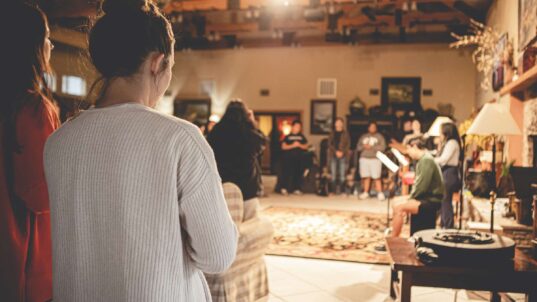
Photo by Aamir Suhail on Unsplash
The Tsukamoto family had lost all hope. They owned a grape farm near Sacramento, California. But, as a result of Executive Order 9066, one of the most despicable acts of the federal government, they and other U.S. citizens of Japanese descent were sent to internment camps. Grapes needed constant attention to thrive. Without knowing when they would be freed from the camps, they faced the loss of their livelihood.
A state agriculture inspector, Bob Emmett Fletcher, gave them hope for the future. He agreed to manage the farms of Tsukamoto and two other families. This would require that he quit his job. He was offered their home as a place to live, but he chose to live in the migrant workers’ bunk house instead. The agreement was that Bob would cover the mortgages and other bills for the farms, and then he could keep any profits. In reality, Bob only kept half the profits. The other half he placed in the bank for the Japanese American families to use to restart their lives after internment. Taking care of three farms was an 18-hour a day job with no days off.
Local White farmers did not approve of Bob’s kindness. They were hoping that the farms would be forfeited, and that they could expand their own farms. The barn was shot at as a warning, and he was continually harassed. For three years he endured repeated abuse, but he knew in his heart that he was doing the right and just thing.
When the Japanese American families were released in 1945, they returned home to find functioning farms and money to get them through the next growing season. Most other Japanese American families were not so lucky.
Bob was a World War II hero who never left the United States. Rather than fighting for the principles of America with bullets, he fought for those principles with kindness and hope.
Little was known of his heroism until later in his life. His story must have brought shame to those who wanted to take advantage of the Japanese American internment policies. He passed away in 2013 at the age of 101.
Just imagine how providing hope can be an act of heroism. Those who give hope to the oppressed are the true heroes of our society. There is no greater gift that one can give to another than hope. That’s a message that all Americans need to be taught.
* * *
“The nice thing about hope is that you can give it to someone else, someone who needs it even more than you do, and you will find you have not given yours away at all.” – Maya Angelou (poet)
This is part of our “Just Imagine” series of occasional posts, inviting you to join us in imagining positive possibilities for a citizen-centered democracy.


